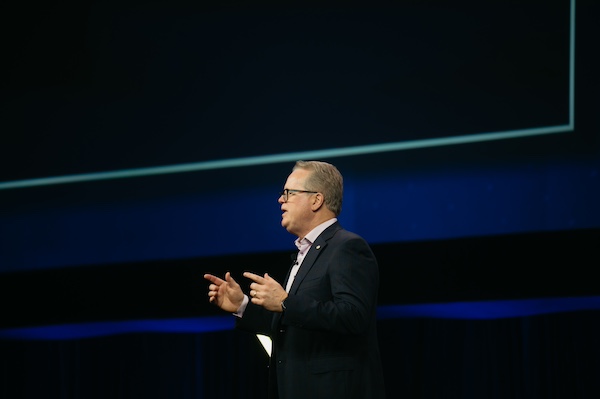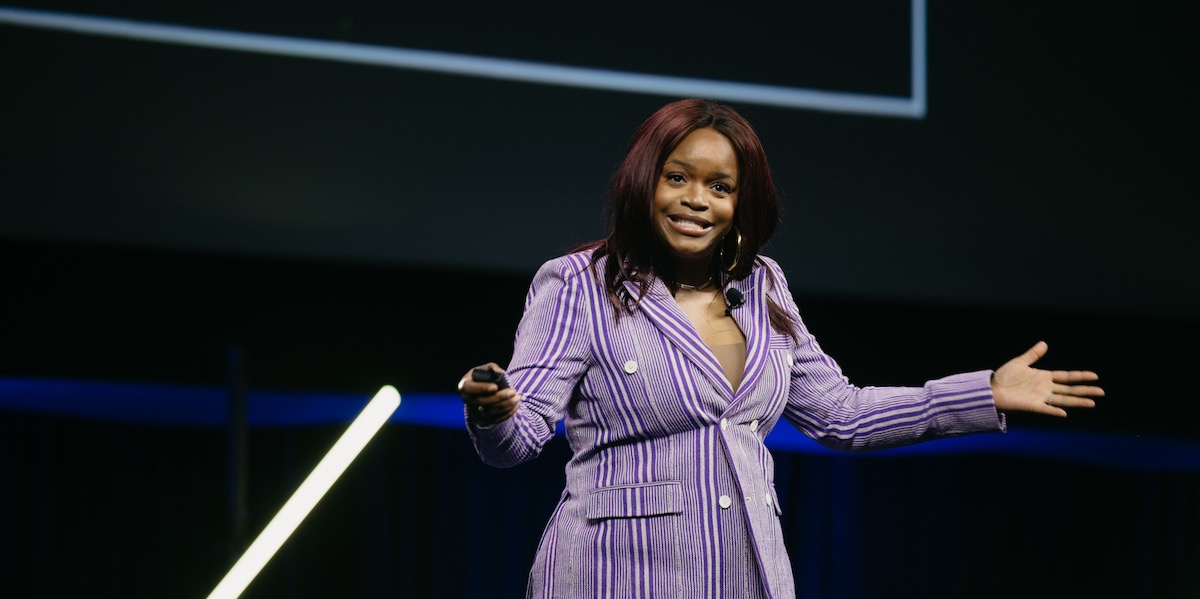How can meeting professionals create a welcoming environment serving four different generations with vastly different needs and perspectives?
This was the timely challenge addressed during one of the first concurrent sessions on Day One of MPI’s World Education Congress (WEC) St. Louis, “Say Hello to the World’s Most Welcoming Events,” led by Jason Dorsey, president of The Center for Generational Kinetics, and Kelly Knowlen, vice president of sales engagement and special events for Hilton and co-creator of the World’s Most Welcoming Events (WMWE) initiative.
Dorsey, author of Zconomy: How Gen Z Will Change the Future of Busines and What to Do About It, addressed the key differences between Boomers, Gen X, Millennials and Gen Z.
“Gen Z is the fastest-growing generation in the workplace today,” he said. “If you don’t consider them, you are missing the future.”
What is the most important thing to know about Gen Z? Dorsey said this generation craves stability above all, given that they’ve weathered two recessions and a global pandemic during their short lives.
Millennials, now the dominant generation in the workplace, are characterized by delayed adulthood, while Gen Xers tend to be skeptical and are the most likely to want to see statements backed up by data. He noted that Boomers are most likely to get to work early, believe there is no shortcut to success and “are able to name the state capitals and read a map that doesn’t talk.”
What constitutes a welcoming atmosphere that serves these diverse generations in today’s environment? Citing research from the WMWE initiative, Dorsey and Knowlen cited the following key priorities among attendees.
Extreme Meeting Preparedness. This includes knowing the agenda in advance and receiving guidance on appropriate attire—a cause of anxiety as people return to in-person interaction.
A Stress-Free Start. A majority of attendees like the opportunity to gather for a meet and greet with the host at the start of a meeting. Also helpful is the ability to text for assistance when needed. Knowlen recommends providing a pre-conference call with attendees to answer any questions they may have.
Downtime. A vast majority of attendees said they need more breaks during conferences, including a flexible schedule with time to recharge between sessions. “I would also say sessions tend to be too long,” Dorsey noted. “That doesn’t mean people will get less from us, but you get a more optimal experience.”
Pod Squads. Many attendees now want the option of bringing a friend to a meeting, someone who is not necessarily a spouse or family member.
This was followed by the Opening General Session “Rally Time: The Confidence Revolution,” featuring a keynote by educator and activist Brittany Packnett Cunningham. Preceding the keynote were heartfelt remarks from Carol Daniel, emcee of WEC St. Louis who personally experienced the May 16 tornado that struck the region, and President and CEO of MPI Paul Van Deventer.
Acknowledging that “we’re in troubling times,” Van Deventer assured the audience that MPI provides a “safe place where you can deeply connect with your peers and colleagues,” adding that “inclusivity is baked into our core values. We will always strive to be an open and welcoming community.”

Packnett Cunningham, a native of St. Louis whose TED Talk “The Revolution of Confidence” has reached nearly 8 million viewers worldwide, spoke movingly about the need for people to draw on their own inner confidence even if they don’t conform to accepted racial or gender archetypes. She noted that confidence is the driver for revolutionary change, citing Nelson Mandela, Malala Yusafzai and Steve Jobs as examples of people who had the confidence to create momentous change.
For Packnett Cunningham, a personal crisis of confidence came when she was scheduled to present her TED Talk immediately following one by a noted rocket scientist. Although terrified, she rallied.
“My job was to find my purpose, stop shaking in my boots and shore myself up to be my most confident self,” she said.
Key to replacing fear with confidence is rejecting what she calls “the imposter syndrome.”
“Seventy percent of Americans experience the imposter syndrome, the message that we’re not enough, that we didn’t go to the right school, that we’re too young, too brown, too female, etc.,” she said. “We’re discouraged from showing up as our true selves. Nothing changes until we change it.”

